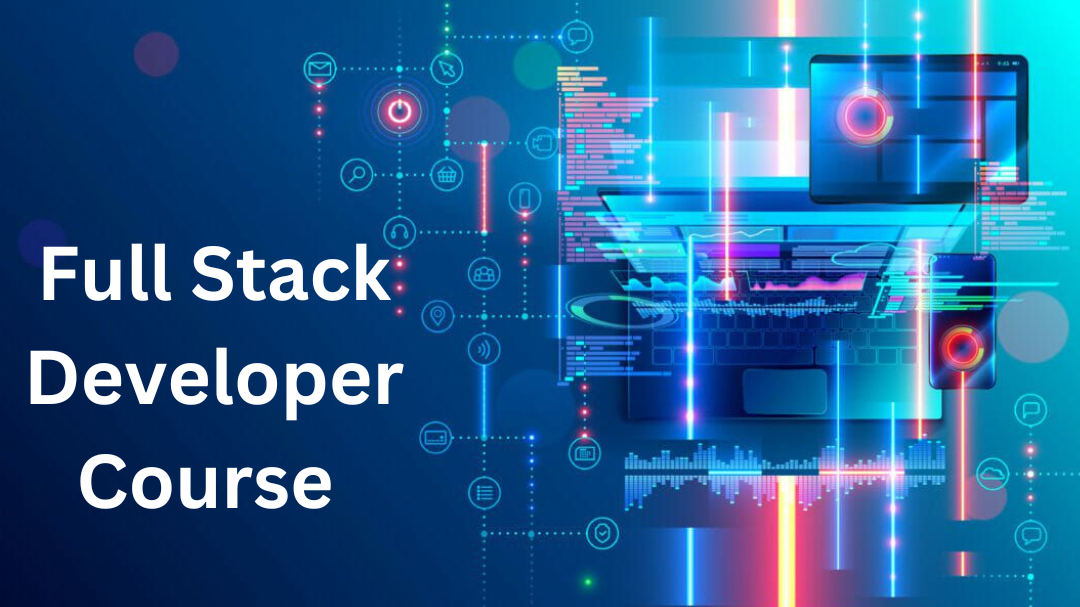Introduction
Full stack development, in the realm of software engineering, refers to the practice of creating both the front-end and back-end components of a web application. This comprehensive approach to development empowers developers to work on all aspects of a project, from designing user interfaces to managing databases and servers. In 2023, full-stack development continues to be a pivotal field in the tech industry, and the choice of frameworks plays a critical role in its success. Frameworks are pre-built sets of tools, libraries, and conventions that streamline and enhance the development process. They provide developers with a structured foundation, reducing the need for reinventing the wheel and allowing for faster, more efficient development. As we delve into the top 10 frameworks for full-stack development in 2023, it’s important to consider the dynamic nature of technology and the evolving needs of developers and businesses.
Criteria for Selection
- First and foremost is popularity and community support.
- Performance and scalability are equally crucial.
- Ease of use and flexibility are significant determinants.
- The learning curve is another critical aspect
- Staying in sync with industry standards and emerging technologies is essential for a framework’s relevance.
Frameworks for Full Stack Development
In the dynamic realm of full stack development, the choice of framework can significantly influence the trajectory and success of a project. As we step into 2023, it’s essential to take stock of the latest and most influential frameworks that are poised to dominate the landscape. Each of these frameworks brings a unique set of strengths and capabilities, catering to the diverse needs of developers and businesses.
1. Express.js
- Express.js has firmly established itself as a leading framework for Node.js applications. It provides a minimalist yet powerful approach to building web applications and APIs. Its lightweight nature and robust routing capabilities make it a favorite among developers.
- It excels in its middleware support, which allows developers to add functionality to their applications easily. It boasts a large and active community, ensuring a steady stream of middleware packages and extensions.
- It is ideal for developing RESTful APIs, single-page applications (SPAs), and microservices. It’s often chosen for projects requiring high-performance server-side logic.
2. MERN Stack (MongoDB, Express.js, React, Node.js)
- The MERN stack is not a single framework but a combination of four powerful technologies MongoDB (database), Express.js (back-end), React (front-end), and Node.js (runtime). Together, they offer a seamless end-to-end development experience.
- It is lauded for its efficiency in creating modern, real-time applications. MongoDB’s NoSQL database, Express.js’s RESTful API capabilities, React’s component-based UI, and Node.js’s non-blocking I/O make it a compelling choice.
- It is versatile and suits various applications, including social media platforms, e-commerce websites, and content management systems.
3. Django
- Django, a Python-based framework, emphasizes rapid development and a “batteries-included” philosophy. It streamlines the creation of complex, database-driven websites by providing a high-level, elegant API.
- It is celebrated for its built-in admin panel, which simplifies content management. Its robust security features, including protection against common web vulnerabilities, are invaluable.
- It is frequently chosen for content-heavy sites, such as news portals, online publications, and forums, where structured data and user authentication are vital.
4. Ruby on Rails
- Ruby on Rails (often called Rails) is an opinionated framework that follows the convention over configuration (CoC) and don’t repeat yourself (DRY) principles. It prioritizes developer productivity and maintainability.
- Rails shines in its elegant syntax and extensive library of gems (Ruby packages) that extend functionality. It also promotes test-driven development (TDD), ensuring robust code quality.
- It is an excellent choice for startups, e-commerce platforms, and projects where rapid development and scalability are paramount.
5. Flutter
- Developed by Google, it is an open-source UI software development toolkit which enables the creation of natively compiled applications for mobile, web, and desktop from a single codebase.
- Its main feature is its widget-based architecture, allowing developers to create highly customizable and visually appealing user interfaces. It offers a rich set of pre-designed widgets.
- It is ideal for cross-platform mobile app development and can be used for creating visually rich applications, including those in the e-commerce and entertainment sectors.
6. Vue.js
- It is a progressive JavaScript framework for building user interfaces. It is designed to be incrementally adoptable, making it an excellent choice for both small projects and large-scale applications.
- It boasts a simple and flexible API that encourages component-based development. Its virtual DOM ensures efficient rendering, and it’s known for its gentle learning curve.
- It is well-suited for developing interactive web applications, single-page applications (SPAs), and front-end components in larger projects.
7. Framework7
- Framework7 is a mobile-first framework designed for building iOS and Android apps with HTML, CSS, and JavaScript. It focuses on providing a native-like user experience.
- It offers a wide range of mobile-friendly UI components and animations. It supports seamless integration with popular mobile platforms, making it easier to create apps with a native look and feel.
- Businesses aiming to develop mobile applications with a consistent and appealing user experience across iOS and Android platforms often turn to Framework7.
8. Serverless Framework
- Serverless Framework simplifies the development and deployment of serverless applications, abstracting the underlying infrastructure. It supports various cloud providers and offers automatic scaling.
- Serverless Framework’s strength lies in its ability to optimize costs and automatically manage resources.
- Startups and businesses with variable workloads can benefit from Serverless Framework, particularly in applications that require efficient scaling.
9. Nest.js
- Nest.js is a TypeScript-based framework that brings structure and scalability to Node.js applications. It is known for its modular and extensible architecture.
- It leverages TypeScript’s strong typing and object-oriented features, making it easier to build maintainable and scalable applications. It also includes powerful built-in tools for authentication and validation.
- It is suitable for a wide range of applications, including RESTful APIs, microservices, and real-time applications, where a structured approach is preferred.
10. Kubernetes
- Kubernetes is an open-source container orchestration platform that manages the deployment, scaling, and operation of containerized applications. While not a traditional web framework, it plays a crucial role in modern application deployment.
- It provides powerful tools for container management and orchestration, ensuring high availability, scalability, and easy deployment of applications in a containerized environment.
- It is essential for enterprises adopting containerization and microservices architectures, allowing them to efficiently manage and scale their applications.
Conclusion
In conclusion, the world of full stack development in 2023 offers a rich tapestry of frameworks, each tailored to meet specific project demands. From the versatility of MERN Stack to the efficiency of Serverless Framework, developers have an array of tools at their disposal. To navigate this landscape effectively and harness the full potential of these frameworks, consider undertaking a Full Stack Development course in Moradabad, Noida, Gorakhpur, Patna. Jaipur and Ludhiana. This course will equip you with the skills and knowledge needed to make informed choices and drive successful projects in the ever-evolving field of full stack development.



